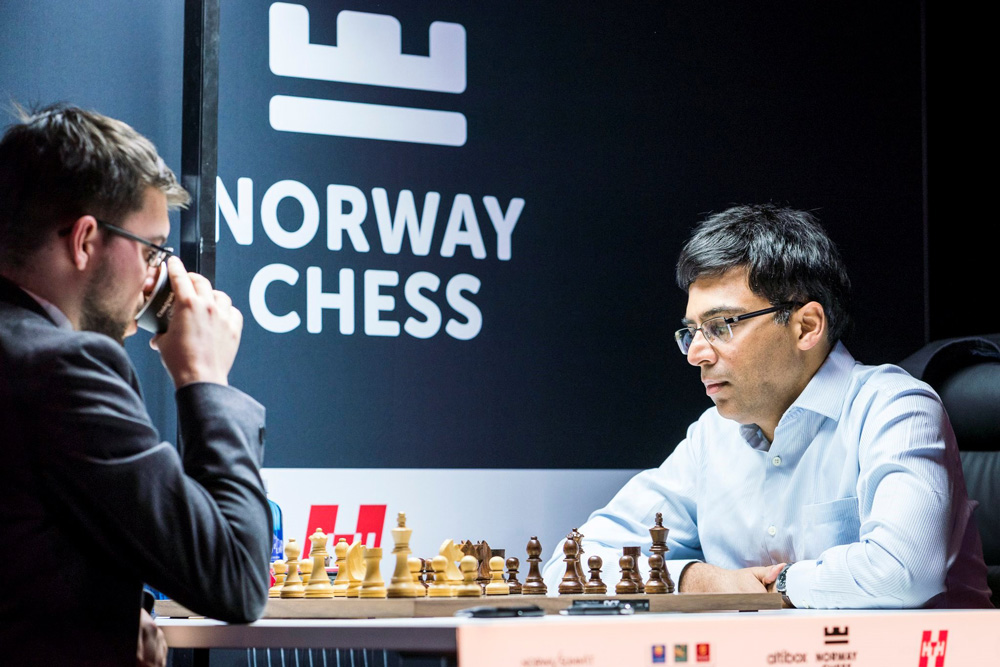Four players with 3½
After the rest day, the seventh round of the Altibox Norway Chess Tournament was played Tuesday without the World Champion. Since the field shrunk to nine players by Ding Liren's misfortune, the rounds are played with just four games, and one player gets to sit out. Carlsen took the opportunity to join the Norwegian TV commentary show, and therefore had a prominent seat from which to watch his lead on So melt to half a point. In addition, So had already played against Ding, and therefore had played one fewer game counted for score, in contrast to Levon Aronian who was playing his seventh game on the adjacent table.

The games have shifted to the Stavanger concert hall | Photo: Lennart Ootes / Norway Chess
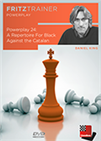 On this DVD Grandmaster Daniel King offers you a repertoire for Black against the Catalan, based around maintaining the rock of a pawn on d5. Keeping central control ultimately gives Black good chances to launch an attack against the enemy king.
On this DVD Grandmaster Daniel King offers you a repertoire for Black against the Catalan, based around maintaining the rock of a pawn on d5. Keeping central control ultimately gives Black good chances to launch an attack against the enemy king.Playing with the black pieces against Shakhriyar Mamedyarov, So faced the Catalan opening — not necessarily the system against which you get a lot of chances to play for a win. Up until the 14th move, the two players followed a variation that Radoslaw Wojtaszek and Anish Giri had recently played at the Vugar Gashimov Memorial in Shamkir. With 14.e4 Mamedyarov tried something new.
However, Mamedyarov did not achieve much. By the 26th move, the game ended with a somewhat discretionary draw by repetition.
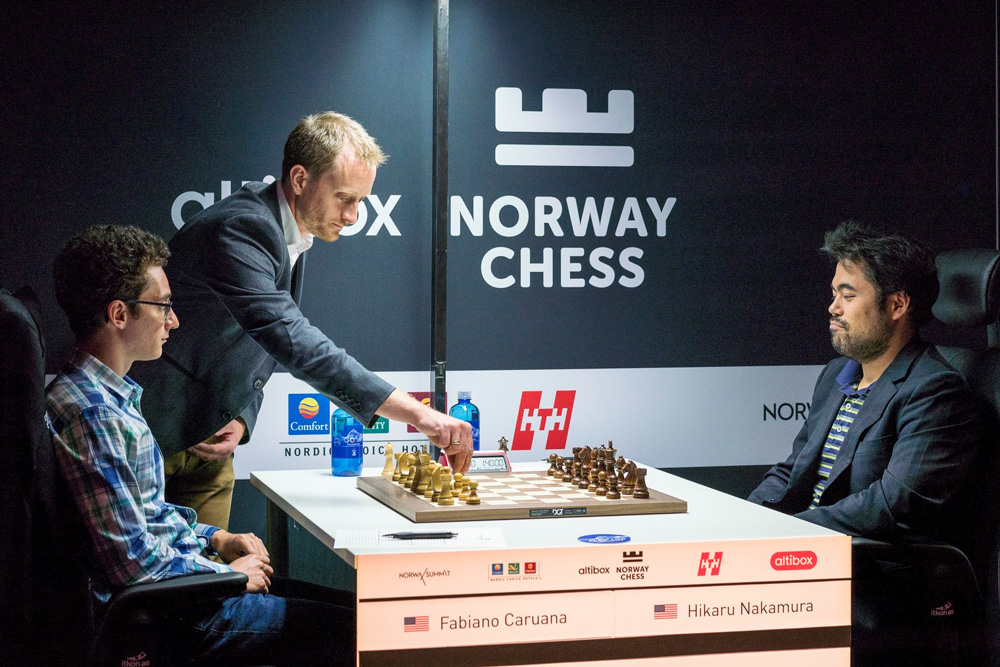
First move on the board of Caruana und Nakamura
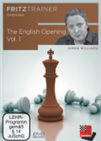 Williams main teaching method behind this set of two DVDs is to teach you some simple yet effective set ups, without the need to rely on memorising numerous complicated variations.
Williams main teaching method behind this set of two DVDs is to teach you some simple yet effective set ups, without the need to rely on memorising numerous complicated variations.At the next table, Fabiano Caruana and Hikaru Nakamura discussed the Mikenas variation in the English opening. Nakamura's manoeuvre 7...Bd7 and 8...Bc6 has hardly been played so far. The queens came off already on the 10th move, and White took a structural weakness in the form of doubled-isolated pawns but received the bishop pair in return.
White got a slight initiative but could not get Black into serious trouble. On move 20, Caruana still tried to spice things up, but to no avail.
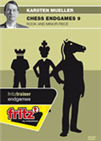 Endings with rook and minor piece against rook and minor piece occur very frequently, even more often than rook endings, yet there's not much literature on them. This endgame DVD fills this gap. The four different material constellations rook and knight vs rook and knight, rooks and opposite coloured (and same coloured ) bishops and rook and bishop vs rook and knight are dealt with. In view of the different material constellations Karsten Mueller explains many guidelines like e.g. "With knights even a small initiative weighs heavily".
Endings with rook and minor piece against rook and minor piece occur very frequently, even more often than rook endings, yet there's not much literature on them. This endgame DVD fills this gap. The four different material constellations rook and knight vs rook and knight, rooks and opposite coloured (and same coloured ) bishops and rook and bishop vs rook and knight are dealt with. In view of the different material constellations Karsten Mueller explains many guidelines like e.g. "With knights even a small initiative weighs heavily".In the game between Sergey Karjakin and Levon Aronian, we saw another early queen swap exchange, on move 14. In the sequence that followed, most of the pieces soon disappeared and the game ended with a with a rook and minor piece plus four pawns on the kingside, in which neither player had winning chances.
 The Open Ruy Lopez gives Black free piece play and chances for the initiative. This sharp and interesting variation has been used by many of the all-time greats, including Anand, Kortschnoi, Botvinnik, Keres, Euwe, Fine and Reshevsky and this is by no means an exhaustive list. White will argue that Black loosens his position in the Open Variation, but if Black takes the time and trouble to learn the ideas and tactical themes that underpin this line, he has every chance to win the game. This will be especially interesting to the club player as it doubtless has been to the grandmasters mentioned above.
The Open Ruy Lopez gives Black free piece play and chances for the initiative. This sharp and interesting variation has been used by many of the all-time greats, including Anand, Kortschnoi, Botvinnik, Keres, Euwe, Fine and Reshevsky and this is by no means an exhaustive list. White will argue that Black loosens his position in the Open Variation, but if Black takes the time and trouble to learn the ideas and tactical themes that underpin this line, he has every chance to win the game. This will be especially interesting to the club player as it doubtless has been to the grandmasters mentioned above.Viswanathan Anand defended against Maxime Vachier-Lagrave's Open Spanish, which has recently undergone a minor renaissance. After the 14th move, there was a position on the board echoing 104 years ago and the game between Alexander Flamberg and Alexander Alekhine at the famous 1914 tournament in Mannheim.
Flamberg then played 15.Bc2, Vachier-Lagrave continued with 15.Nf3. Here and there black got a good game. Anand opened the f-file and invaded with his rook causing White considerable headache.
There followed 24...c5, which threatens 25...c4. Vachier-Lagrave was forced to settle into a worse endgame that Anand easily won.
Anand played 40...Ke6. Play it out on the live diagram to prove it to yourself if you like!
Round-up show
Standings after Round 7
Games of Round 7
Translation from German: Macauley Peterson
Links
